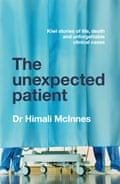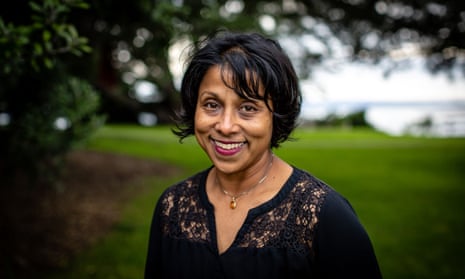If there is one patient who has opened my eyes to my own cognitive bias and who has helped me to recognise the profound effect of the past on a person’s health, it is my patient Arama*.
“Hey, what’s up, doc?” says Arama as he walks into my consulting room one day. He’s weaving a little, his breath reeks of alcohol, his speech is slurred. He wants to get some antibiotics for a chesty cough that he’s had for a week.
I’ve known Arama for years. He’s a Māori patient in his fifties and he has the chronic lung condition bronchiectasis. He is a lifelong smoker, with multiple attempts to quit under his belt and, as I have recently discovered, he also drinks excessively at times. He and his partner are living in someone’s cold, draughty garage. Over the course of a decade, I have doled out multiple antibiotic scripts for Arama’s illness-prone lungs. Each time, I ask him to stop smoking. We discuss using community services to help him reduce his intake of alcohol. He tries, off and on, but finds it hard to engage with them.
I write letters to Housing New Zealand pleading his case – a patient with a chronic lung condition needs better accommodation than a cold garage – but the answer is always the same. Too many people needing a home, not enough houses. I try to organise insulation for his current residence, but find out that he doesn’t qualify for this. Arama seems to take on board my advice every now and then, but usually he slips back into old habits.
When Arama is sober, he is funny, self-deprecating, smart-mouthed. He has a savvy street-smart intelligence, an appraising air. He follows complex medical logic better than other patients. He struggles with his addictions; he doesn’t want them, yet he keeps coming back to them. He has aspirations for a better life, just like anyone else, but the hole he is in is particularly large and particularly difficult to get out of. His inability to change causes me immense frustration for several years. I know objectively that there are certain measures that can help this patient, so why won’t he just take my advice? Aren’t some of the changes he needs to make simple enough to do?
I clearly remember the revelation on this particular Monday morning that changes my understanding and my attitude towards Arama. He’s in a talkative mood, and we get to chatting about this and that. Maybe the alcohol has loosened his tongue and lowered his defences. At any rate, he lets slip an offhand comment: “Yeah, I got a lot of shit growing up. I was molested, eh.” I sit back and look at him. I’d been so stuck in my medical frame of mind, diagnosing and fixing Arama’s physical complaints, that I hadn’t taken enough notice of his “iceberg”. That submerged clod of memories, experiences and beliefs we drag around with us, that we rarely show to others, that we may in fact be unaware of. The things we carry from our childhood. The thumbprints of our ancestors on our souls.
A patient rarely presents with their iceberg, but it affects their health in multiple ways and can be more important than the presenting complaint. Yet there’s a stigma to disclosing past abuse or addictions. Or the fact that a social situation is unsafe, riddled with violence, beset by vulnerability. It’s too hard to divulge emotional pain, easier to talk about physical pain.
This conversation with Arama happens at about the same time that I’m reading up on New Zealand history. All that “forgotten” history. I’d lived in New Zealand for 25 years by this stage, yet this was the first time I was finding out about these events – the land confiscations, the killing of unarmed men, women and children, the smothering of a language. The justifications for violence, the grossly unequal wars that were fought on trumped-up charges. The fact that many sites of historical significance are hardly signposted, even today.
My reading had made me start to think about the generational ramifications of trauma on health. How much of an impact does land loss and loss of culture have on the health of individuals alive today?
When Arama starts to describe his childhood, I am in a receptive frame of mind. The next patient will have to wait. Over the course of today’s consultation, and further consults later on, I learn a lot about Arama. I start to recognise that he does not exist in isolation to the things that have come before, or the things around him now. His health and wellbeing are inextricably influenced by his childhood, which in turn is influenced by the lives of his parents, and their parents before them.
He tells me that he was adopted by extended whānau, in a practice known as whāngai. “I was the youngest in the family, and quickly became Dad’s pet. This made my older adopted brothers and sisters jealous. Even now, there is still ill feeling.”
Arama’s adoptive father worked as a truck driver; his adoptive mother was a seasonal orchard worker, and she spoke te reo Māori, “But she never shared this with us, Doc, cos she was strapped for speaking it.” His father had fought in the second world war, but he did not talk of his experiences. “I wish he’d shared some of that stuff. I think it really scarred him for life, eh.” After returning from the war, Māori ex-servicemen were sometimes left to fend for themselves. The assumption was that they would have access to tribal land – an incorrect assumption, as less than 10 per cent of land remained in Māori ownership by then.
Perhaps owning land and a house would have given Arama’s adoptive father a much better shot at life. As it was, he became a heavy drinker; Arama believes now that he had PTSD. Arama says of himself, “I was quite bright when I was young.” He remembers enjoying school as a child.
His mother’s family were reasonably well educated, but poor. Arama remembers a childhood devoid of opulence or treats, but he felt loved, especially by his father. There was always alcohol in the house, thanks to his father’s alcoholism, and parties were a common occurrence. It was at times a chaotic place to be a child. Arama started to get sexually abused by various male relatives from the age of six onwards – an uncle, some cousins.
When Arama was 11, his adoptive mother died of a sudden bleed in the brain at just 48. It triggered a marked worsening in Arama’s fortunes: his adoptive father, wracked by grief, left the kids in the care of extended family and went trucking for months at a time. Bereft of both his parents, Arama started to drink – he’d already started smoking at the age of nine. When he was about 14, he remembers getting a severe bout of pneumonia and not getting treated. I suspect this paved the way for his bronchiectasis.

After leaving school, he got a job at a factory. However, he started to drink heavily, with almost daily marijuana use. “I went through a bad patch from 18 onwards. It’s like I saw it, so I did it. I felt as if I had it all, friends, booze, parties, but actually I think I was mentally unstable, feeling abandoned by dad. So I drank and drank.” Stints in various jobs followed, but most didn’t last long as he got swayed by “girls and parties”. He tried to do some courses, including learning te reo Māori, but found studying was hard as an adult despite having enjoyed it as a child. He failed all his courses.
“I felt like I was not spiritually or mentally sound enough to learn my own language.”
We finish our chat. I’m running 30 minutes late, but I’ve learned a whole lot more about my patient than I could have during a doctor-led consult.
*Names have been changed
This is an edited extract from The Unexpected Patient by Dr Himali McInnes. Published by HarperCollins NZ, RRP $36.99 NZD.
